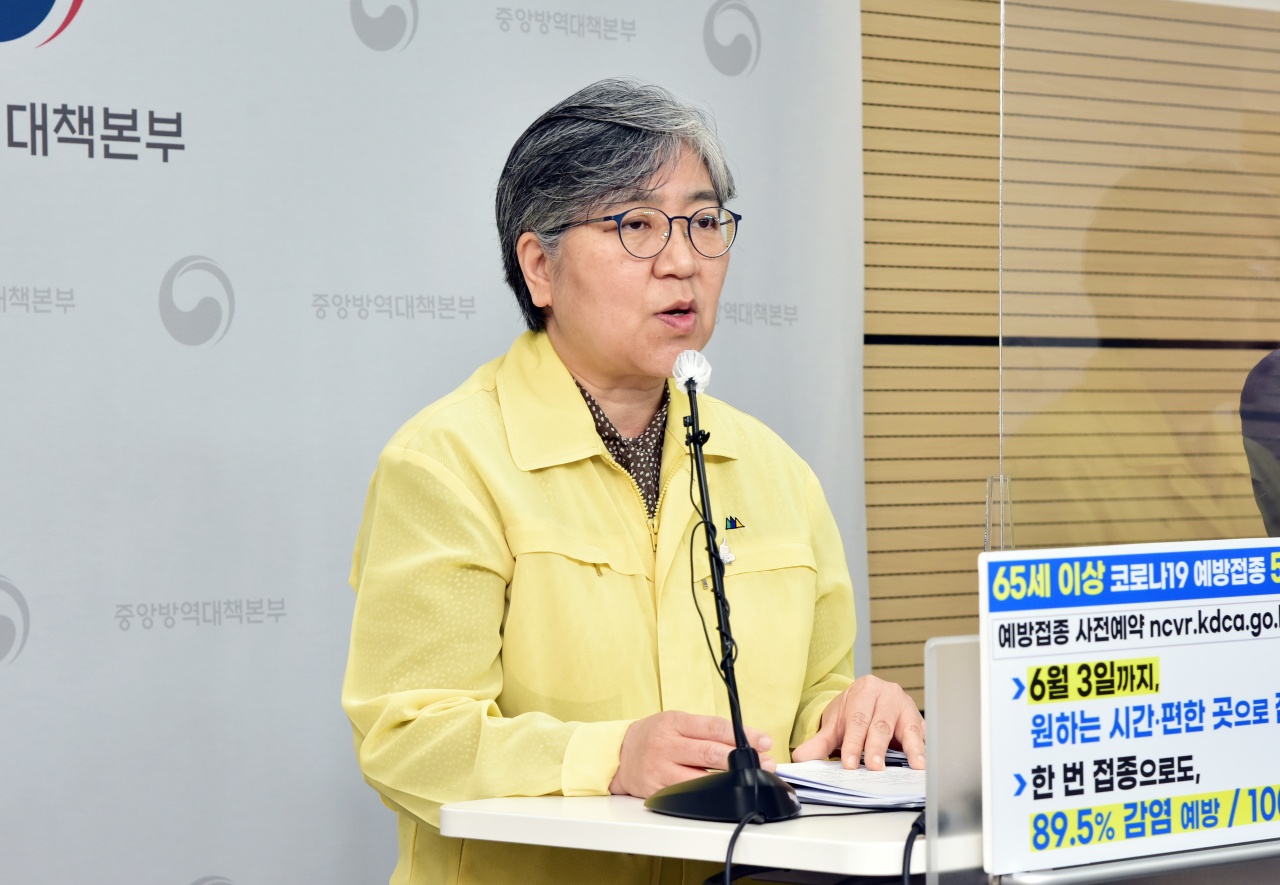 |
Jeong Eun-kyeong, the head of the Korea Disease Control and Prevention Agency, speaks during a news briefing Monday afternoon. (KDCA) |
South Korean health officials said Monday that a rare blood clotting condition associated with the COVID-19 vaccines from AstraZeneca and Johnson & Johnson -- thrombosis with thrombocytopenia syndrome, or TTS -- was confirmed in a man in his early 30s.
The Seoul man, a “worker in a sector prone to COVID-19 exposure,” received his first dose of the AstraZeneca vaccine April 27, according to the Korea Disease Control and Prevention Agency. Roughly 10 days later, he started experiencing a severe headache. He was hospitalized with a seizure on May 12 and was soon diagnosed with cerebral venous thrombosis, or clotting in the brain. He is currently recovering in the hospital.
Based on the results of blood and imaging tests and his recent history of vaccination, the medics suspected TTS and reported the case to the agency. The agency reviewed the matter Sunday and confirmed the link to the vaccine.
Jeong Eun-kyeong, the agency’s commissioner, said TTS was “treatable if detected early and given the appropriate treatment.”
The agency advises people who experience suspected symptoms of TTS four to 28 days after an AstraZeneca or Johnson & Johnson vaccination to seek immediate medical attention. Symptoms include severe headache, abdominal pain, shortness of breath, blurred vision, leg swelling, easy bruising and nausea.
She said raising the recommended age range for either the AstraZeneca vaccine or the Johnson & Johnson vaccine, currently 30 years and up, was not being considered at the moment.
“But as vaccinations proceed, Korea may begin to see more reports of TTS, and some adjustments may come under review based on frequency of such events and other considerations,” she said. “So far this is one case confirmed out of over 3 million who received the AstraZeneca vaccine.”
The Korean Society on Thrombosis and Hemostasis’ laboratory medicine specialist Dr. Jang Seong-soo, who is overseeing the TTS diagnosis efforts in Korea, said all of the man’s blood samples taken over different time intervals came out positive for platelet factor 4, or PF4, antibodies -- an important diagnostic marker for TTS.
Jang said the man was the first in Korea to be tested with the PF4 ELISA assay that is the standard for diagnosing TTS. “The ELISA assay became available in the country last week, and we expect to be able to run more tests from now on,” he said.
Since the man’s symptoms were highly suggestive of TTS, he was not given heparin, a blood thinner that is discouraged as a treatment for the vaccine-induced condition, Jang said.
“The medics did the right thing in exercising caution before a confirmed diagnosis,” he said. “Use of heparin should be avoided in any patient who presents with blood clots after the AstraZeneca or Johnson & Johnson vaccine.”
By Kim Arin (
arin@heraldcorp.com)








